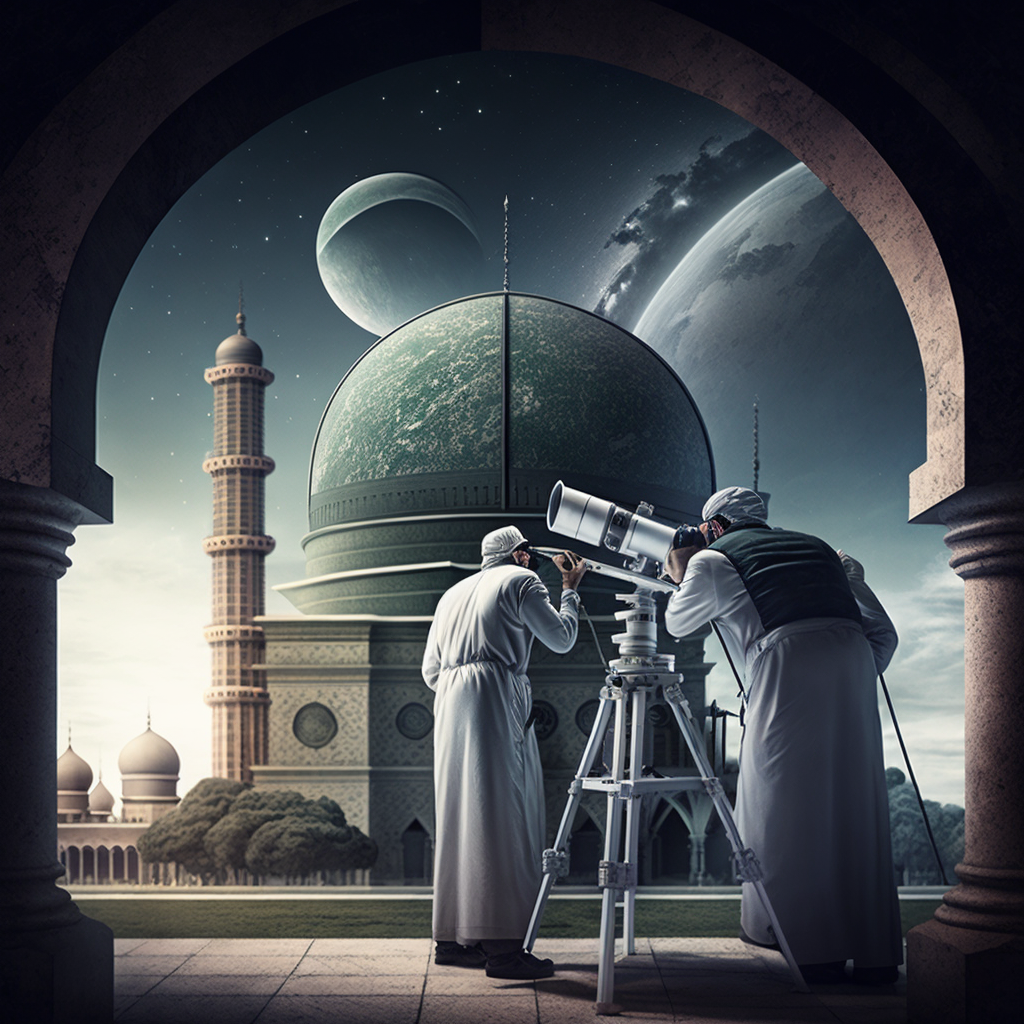
Al-Nahda (Renaissance)
Al-Nahda refers to an intellectual renaissance and an academic resurgence which seeks to enlighten minds and reinvigorate the rational faculty that every individual possesses. This Nahda does not associate with the al-Nahda al-‘Arabiya (the Arab Renaissance) of the nineteenth and twentieth centuries, which witnessed a cultural revival in the Arab world.1 The Renaissance here serves to render a rekindling of Muslim thought, reflecting on Muslim academic heritage and marching toward a new intellectual era. This journal aims to bridge the legacy of the Muslim golden age with the breakthroughs of contemporary times. The purpose of the features is to stir your intellectual faculty, engage in the process of thought-building, and encourage new academic inquisitions.
هُوَ الَّذي أَرسَلَ رَسولَهُ بِالهُدىٰ وَدينِ الحَقِّ لِيُظهِرَهُ عَلَى الدّينِ كُلِّهِ وَلَو كَرِهَ المُشرِكونَ
(Qur’an 9:33)
“He is the One who has sent His Messenger ﷺ with the guidance and the religion of truth so that He may elevate it over all religions.”
The Prophetic Mission
This verse of the Holy Qur’an describes the civilisational foundation of Muslim thought and the globalised project of the Din. The aim of religious work is to make the truth apparent and allow it to encapsulate all else. Muslim thought centres around the illumination of darkness and removal of ignorance by spreading the light of truth. This verse also reveals that Islam is universal and not localised or regional. Islam is meant to assume a globalised form, and it is important to share its divine truth with everyone in the world.
The Holy Prophet ﷺ commanded Muslims to “seek knowledge as far as China”.2 The Prophetic imperative seeks to encourage Muslims to travel to distant lands in order to inherit knowledge and commit to the path of learning. The purpose of this command is to emphasise the importance of cross-civilisational learning and absorbing traditions from various cultures, traditions, and people. Muslim thought must not be parochial and narrow. Instead, this Prophetic command underlines the importance of being diverse, vast, and encompassing of numerous intellectual traditions.
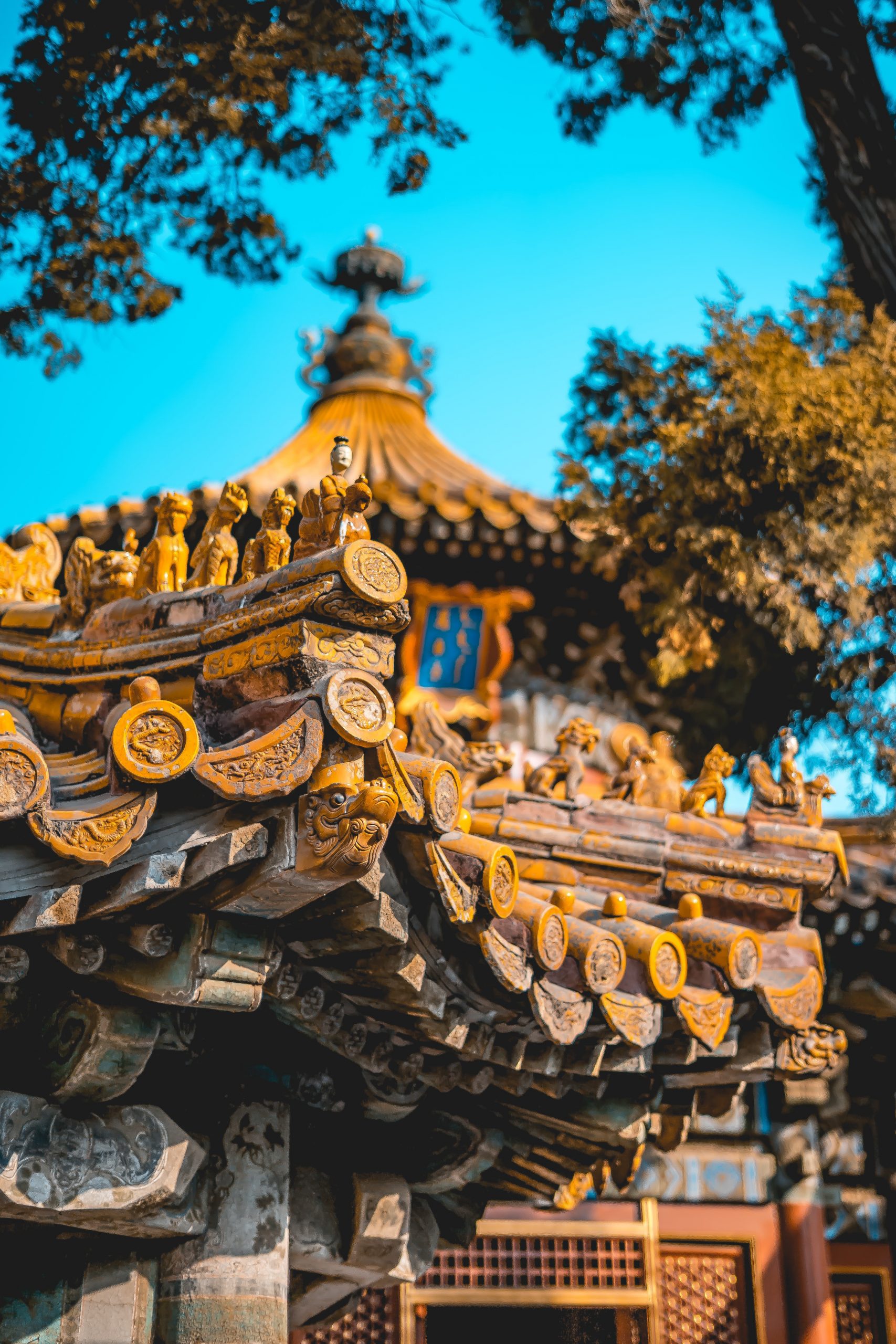
Unfortunately, the Muslim world has fallen from its rich intellectual heritage. Once, the Muslim world was home to scientific discovery, philosophical debate, and technological innovation. Now, this legacy has dwindled into a vacuum. This is the result of two forces applied upon Muslim academia to concentrate on intellectual and academic achievements with freedom and liberty. The first force is the rise of autocracy and authoritarianism, both historically in Muslim empires and in contemporary Muslim states. The second force is the advent of Western colonial intervention in Muslim lands and the suppression of native culture and thought. Together, these two forces have suppressed the trajectory of Muslim thinking and intellectualisation.
Where is Ibn Sina today? Ibn Rushd? Al-Rumi? Al-Ghazali? Al-Razi? They all exist here in the contemporary Muslim world. They just need to be discovered and given space to express their intellectual abilities. The vast treasures of Muslim intellectual thought still exist. They just need to be resurfaced and brought to the forefront of contemporary debate. It is time for a new dawn, a new age, a new consciousness, and a new intellectual civilisation. Muslim thought must be restored with a “ba’athiyya” (renewal), “tanwir” (enlightenment), and “nahda” (renaissance).3 The first step ahead on this march is to break the shackles of idleness, apathy, and stoicism that have befallen Muslim thought. Academics must strive to become trendsetters and fearless in their intellectual pursuits.
Ibn Firnas’ Flight
There is something to be learned from Abbas ibn Firnas’ experiment with human aviation and the flying machine he created in the 9th century.4 Ibn Firnas leapt into the sky and flew quite a distance in 875 AD.5 This was perhaps one of the earliest human aviation attempts in history. Ibn Firnas’ aeronautical machine resembled a bird. Sure, Ibn Firnas crash-landed, but it was his determination to leap into the sky that matters. Thinking beyond the horizon is essential. It is the courage to take the jump into the unknown and venture into the oblivion which sets exceptional people apart from the rest. Muslim thought and civilisation have crashed landed in recent centuries. Ibn Firnas at least had the courage to fly into the sky.
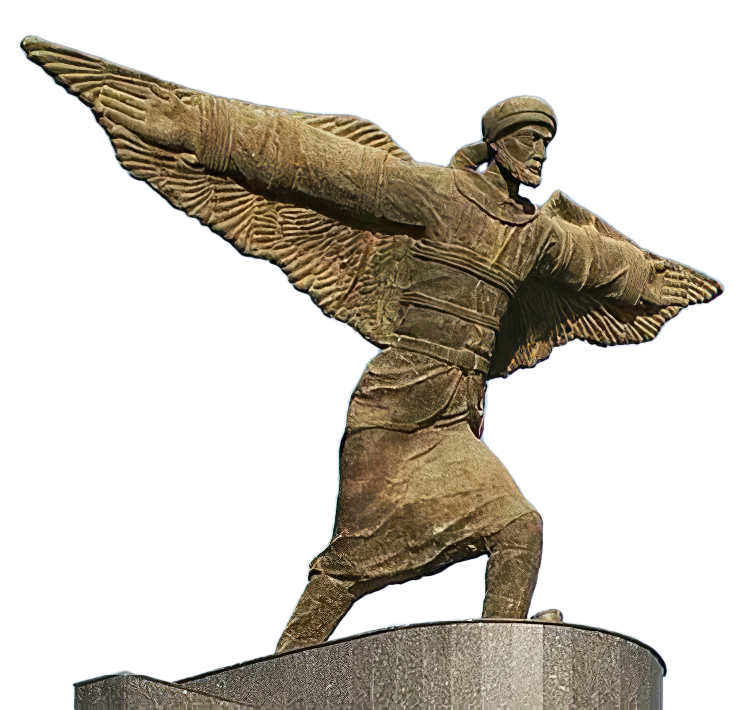
Muslim thought has withered away and rusted away without even taking a leap of faith. One must aim to fly beyond the stars. It takes a mind that thinks beyond this galaxy and a will sterner than steel to kick-start a new renaissance. This will be the aim of al-Nahda. To glide into a new age of Muslim enlightenment and civilisation.
The Great Cosmopolitan Capital Baghdad
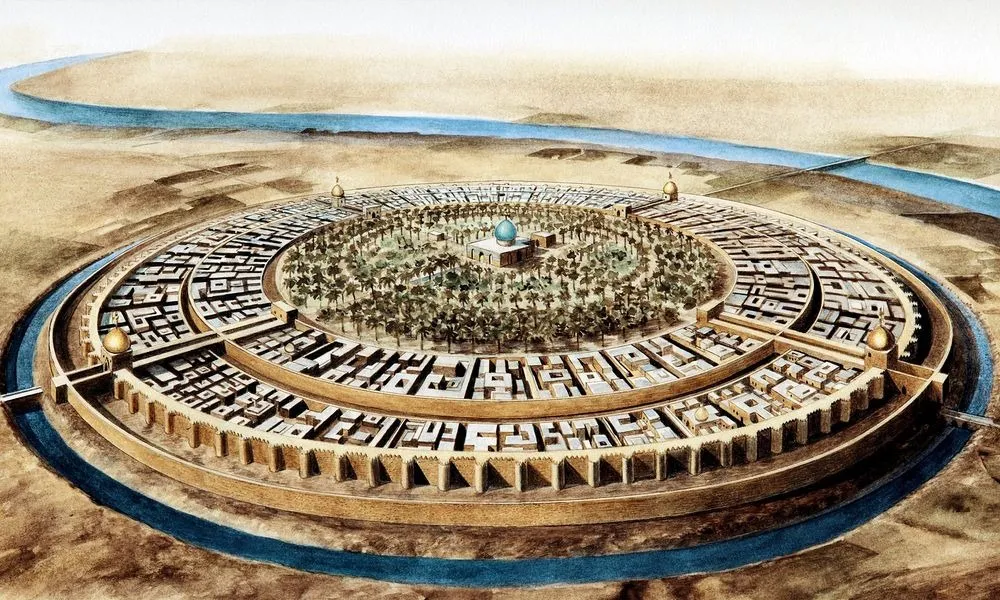
There was a time when the great cosmopolitan cities of Muslim empires thrived and espoused great culture, knowledge, and scientific progress. The city of Baghdad flourished under the Abbasid dynasty.6 The House of Wisdom (Bayt al-Hikmah) became a centre of academic heritage and philosophical work. Baghdad was a cosmopolitan city which enveloped several cultures, ethnicities, and entities.7 This city was home to the Persians, Arabs, and Turks, and it was inhabited by Christians, Jews, and Muslims alike.8 The rich intellectual heritage of Baghdad offered its rulers and administrators a diverse and encompassing governance mindset.
The city at the heart of Muslim civilisation was ruled based upon the principles of social responsibility, equality, and justice.9 This ethos can be traced to the importance that the political and social elite of Baghdad gave to knowledge, enlightenment and progressive thinking. The Constitution of Madina was the first-ever covenant and declaration of political equality, freedom and justice. The Holy Prophet ﷺ ensured the equality, liberty and protection of all the citizenry of Madinah, including Jewish and Christian minorities. This Constitution was a source of inspiration for the great city of Baghdad and its rulers.10 If Muslim metropolises today invest in the study and application of the political and social tenets of the Constitution of Madina, they can once again thrive and enjoy a new era of civilisational flourishing.
The Ottoman Empire
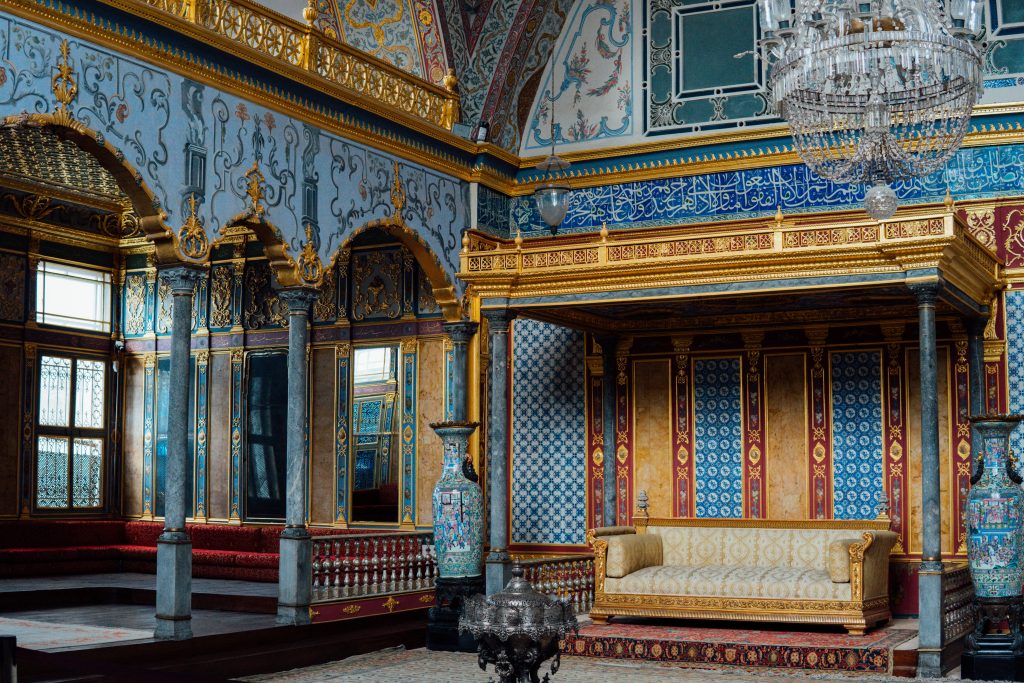
The Ottoman Empire held together Muslim civilisation, political integrity and thought for a period of approximately four hundred years. There was no leaping progress made in the intellectual domain, but the ship remained steady for the most part.11 The fault of the Ottoman Empire was its deep centralisation of governance and autocratic nature. As a result of which, knowledge remained confined in the hands of a few, and intellectualisation was the prerogative of only the elite. The masses remained aloof from academic and intellectual pursuits. This phenomenon is detrimental to the intellectual progress of any civilisation and is a recipe for slow disintegration.
It was the duty of the Grand Mufti12 of the Ottoman Empire to offer edicts and religious rulings on the permissibility of social decrees, government matters, academic investigation, technological innovations, and civic issues.13 In most cases, the Grand Mufti was open to progressive ventures, however, there were times when the Grand Mufti was hesitant. In 1515, the Grand Mufti at the time of Sultan Selim I deemed the printing press impermissible. As a result, the Ottoman Sultan forbade the mass printing of books and thereby limited the dissemination of knowledge.14 This resulted in the limiting of intellectual awareness amongst the masses and usurped the ability for knowledge to trickle down into the laps of common citizens of the Muslim world under Ottoman rule. The concentration of knowledge and information in the hands of a few and the elite resulted in the erosion of the Ottoman Empire.
INSERT
The Decline of the Ottoman Empire and Foreign Intervention
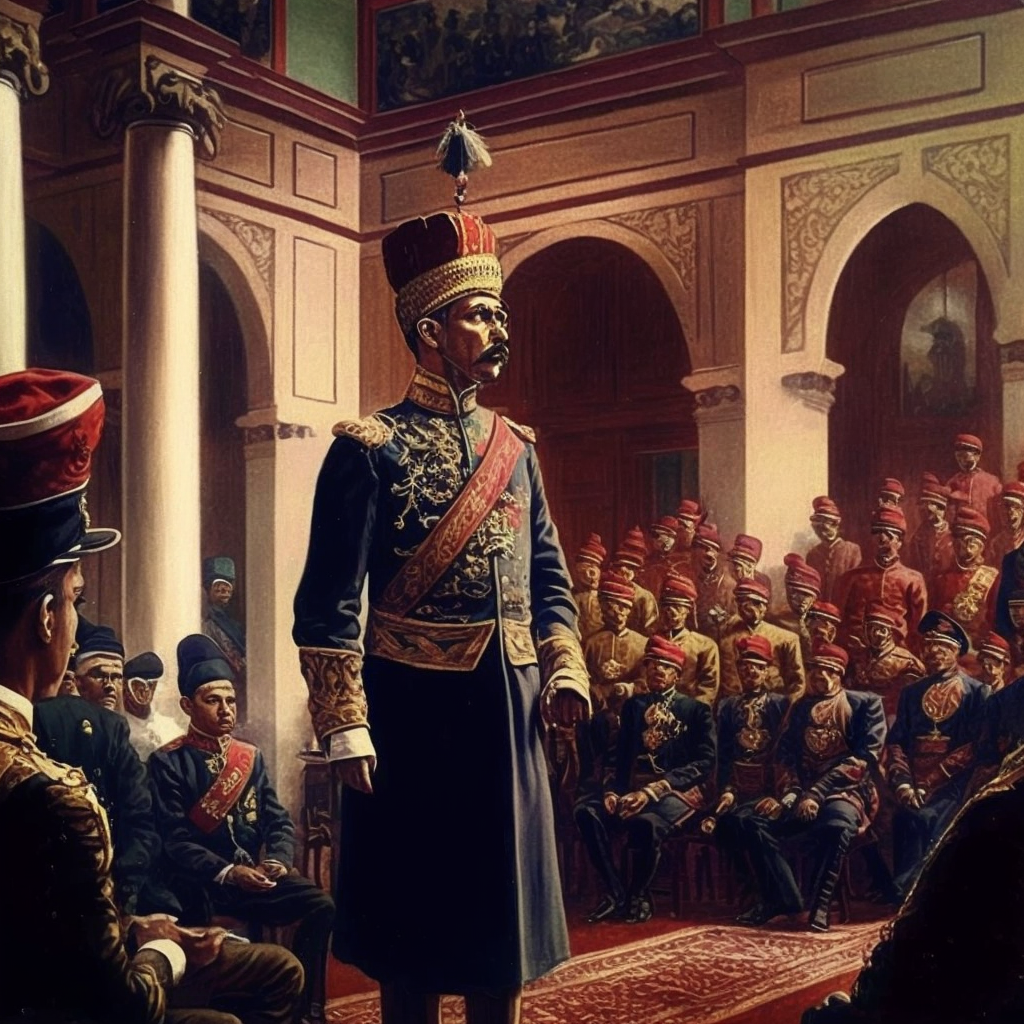
The Ottoman Empire did not encourage intellectual liberty, and this made its social fabric and civil society obsolete. In ‘The Rise and Fall of the Great Powers’, Paul M. Kennedy alludes to this thesis of decline. The Ottoman Empire lacked technological innovation, social mobility, and a political metamorphosis in accordance with the progress of the world around it.15 Consequently, the Europeans began referring to the Ottoman Empire as the Sick Man of Europe. This was a reference to the obsoleteness of the Ottoman Empire as it withered away in the nineteenth and twentieth centuries. The Ottomans were responsible for their own intellectual drought as a result of their centralised systems and elitism.
Western Colonial Subjugation and the Disintegration of the Muslim World
The other reason for the general intellectual drought in the Muslim world was foreign intervention and colonial rule. In the nineteenth and twentieth centuries, European colonial powers conspired to dismantle the Ottoman Empire, in collusion with local Arab tribes.16 As well as the Ottomans’ own embargo on civil society’s intellectual freedom, the advent of European colonial intervention in the Muslim world single-handedly curtailed twelve-hundred years of Muslim civilisation’s social, cultural, intellectual, and political progress. The plight of intellectual thought and academic advancement in the Muslim world can be mainly attributed to foreign occupation and dismantling of the Ottoman Empire following the end of the First World War. This left the Muslim world in disarray and catastrophe. Instead of focusing on intellectual breakthroughs and achievements, academia shifted its attention toward anti-imperial thought, reactionary thinking, political activism and nationalism.
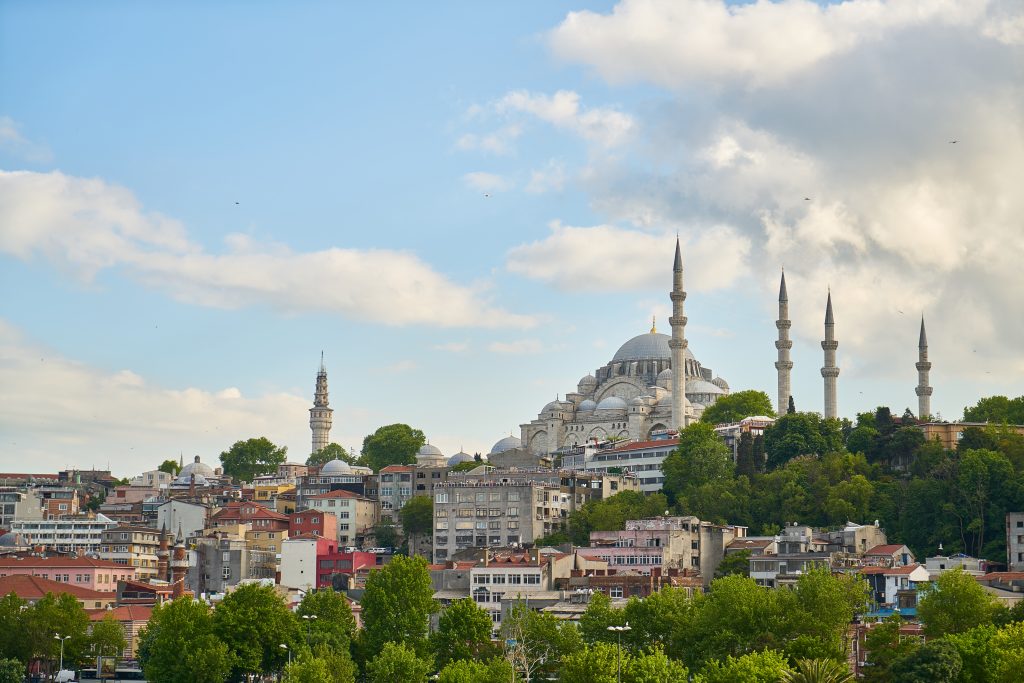
Ottoman Reforms
When in fact, the Ottoman Empire had been in the process of advancing reforms known as the tanzimat, between 1839-1876, which started under the rule of Sultan Mahmud II and was carried on by Sultan Abdulmejid I.17 These reforms were transforming Muslim polities under Ottoman rule into contemporary constitutional states, extending civil liberties, forging modern bureaucracies and creating rigid institutions. The groundwork for a progressive political entity was in the making, until foreign powers ruptured the Ottoman entity. The tanzimat reforms were a series of constitutional reforms that extended political and civil liberties, revamped the legal and social structure of the Empire, upgraded state institutions, reformed the education system and recentred the social fabric of the Empire.18 These reforms were paving the way for progressive development on the intellectual front and opening the Muslim world up for a new era of progress. However, by dividing up Ottoman territories amongst themselves and subjugating populaces after the First World War, European colonial powers turned the clock back by a millennium in the Muslim world.
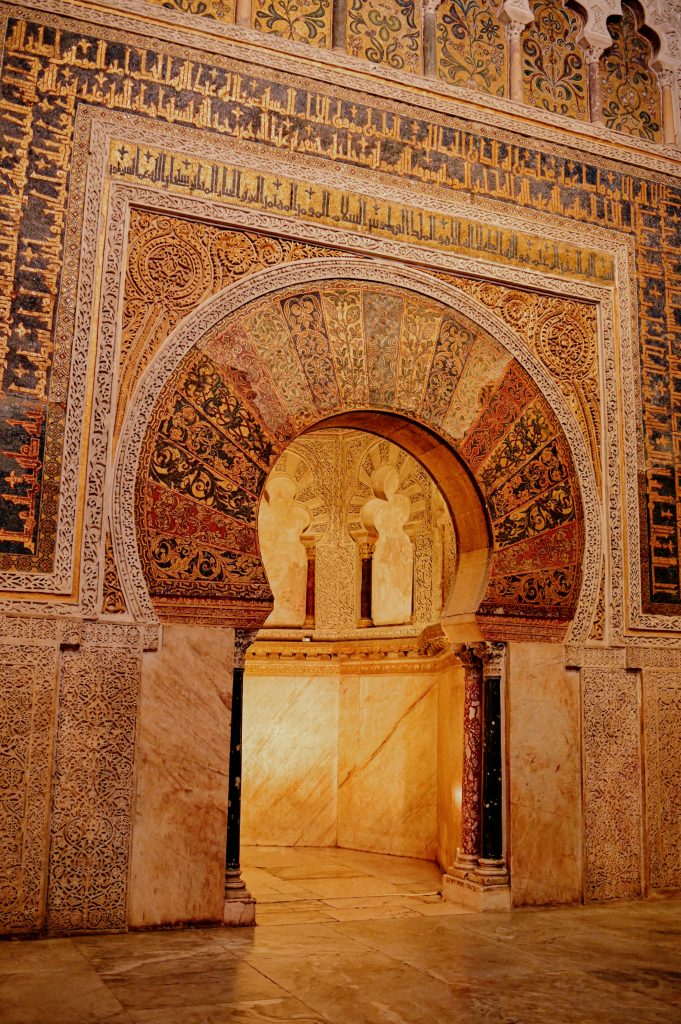
The Arab Nahda
The Nahda in the Arab world, which is known as the “rising up”, the “renaissance” or the “awakening” was a social movement in the Middle East in response to the political, social and intellectual subjugation by the European colonial powers.19 Al-Nahda al-‘Arabiya (the Arab Renaissance) was an intellectual, cultural, social, and political movement forged in response to Western imperialism in the Muslim world. The Arab world experienced a revival of Arabic literature, poetry, music, and political thought and discovered a vast crème of native thinkers. These Arab “nahdawis” backed the Ottoman constitutional reform that took place in the twentieth century because it sought to rejuvenate the old regime and resurrect the social and intellectual foundations of the Muslim world.20 There was a synthesis between Ottoman reformism and the Arab Renaissance in the making before foreign powers intervened in the Muslim world.
The Arab-Ottoman Synthesis
The synthesis was based on Plato and al-Farabi’s concept of the “King” and the “philosopher”, who were one and the same according to both thinkers. It was the “King’s” duty to be enlightened and govern his polity with justice. The ruler of the state or a polity determined civilisational progress. It was this King’s responsibility to ensure the “tamaddun” (civilisation) of his polity progressed forward.22 The Ottoman Sultan was the closest iteration as a ruler to Plato and al-Farabi’s conception of the philosopher king. The Sultan had the prerogative to incite an intellectual, political, and social revolution amongst his citizens. Perhaps the Ottomans should have done more to encourage intellectual and academic pursuits? The Tanzimat reforms were one step in the right direction, laying down the foundations for contemporary state institutions that would have facilitated civil society’s pursuit of ‘ilm (knowledge), intellectualisation and academic pursuits.
This was cut short in 1924 when the Ottoman Empire was sent to the gallows. The monarchies and autocratic states that inherited former Ottoman territories were severely opposed to the extension of civil liberties, political freedom, and liberal reforms that the Ottomans had been envisioning. Since the collapse of the Ottoman Empire, Muslim lands have been occupied by rigid states that do not encourage academic liberty and intellectualisation.
When the Ottoman Empire entered its last decade, a group of nationalist students and a brigade of Ottoman officers launched a coup against Sultan Abdul Hamid II in 1908, which is commonly known as the Young Turk Revolution. They demanded more political participation and the lessening of the Sultan’s influence in matters of the state. These revolutionaries were rationalists, secular, and Turkish nationalists. Their revolutionary impulse was the Turkification of the Ottoman Empire, to the detriment of the Arab and non-Turkish populations of the Ottoman Empire.23 The seed for Arab versus Turkish civilisation was placed within the Empire, which eventually led to the collusion between European colonial powers and Arab tribes against Ottoman rulers during the First World War. The subsequent revolts and foreign intervention lead to the demise of the four-hundred-year Empire. This was the final nail in the coffin of whatever was left of Muslim civilisation and intellectual heritage.
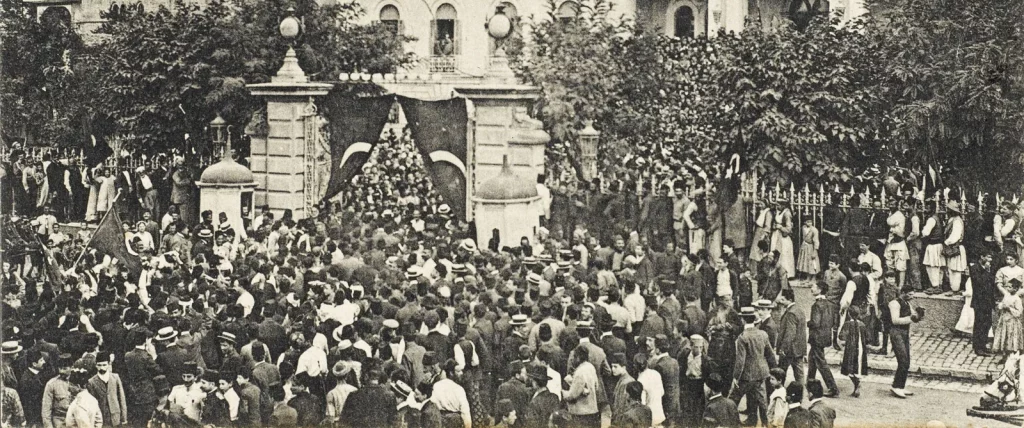
Muslim Thought in Free-Fall
The Muslim world fell into disarray and nose-dived into free-fall after the First World War, as the Western colonial powers secured their dominion and subjugated populaces. Muslim thinkers and intellectuals were marred by indecision and a lack of clarity. Some modern Muslim thinkers such as Sir Syed Ahmad Khan resorted to a “compromise” between Muslim thought and Western thinking.24 These thinkers attempted to re-discover the scientific method in Muslim thought, in an attempt to rapidly catch up to the progress the West had made on the intellectual front. The opposite end of the spectrum resorted to Puritanism by returning to the methodology of the salaf, and this group became known as Salafis or pejoratively as the Wahabbis. The Muslim intellectual world was consumed by a duel between “aql”—reason, and “naql”—transmission.
Is Muslim thought determined by science and reason, or transmission and divine source? This frivolous debate continues today. However, the legacy of Muslim academia and intellectual heritage suggests that Muslim thought has always offered reasonable weightage to both ‘aql (reason) and naql (transmission).25 The understanding and application of what is stated in transmission and divine sources must be understood through the lens of ‘aql. If either one is levied alone, then the outcome of intellectualisation will be skewered.
Today, Muslims must revere the divinity of primary sources, which include the Qur’an and Sunnah. At the same time, Muslim thinkers must rely on contemporary methods of intellectualisation, which include the scientific method, empiricism, and rationalism. This was the way of thinkers in the Muslim Golden Age (7c. AD to 12c. AD).
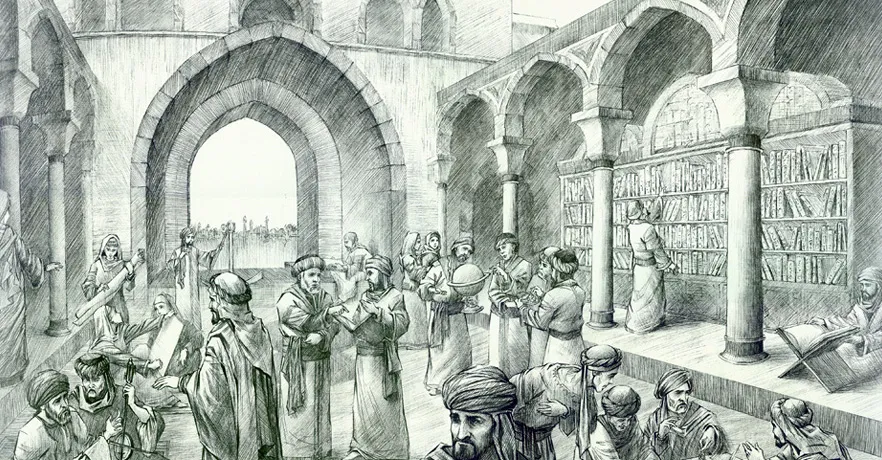
A New Movement and a Way Forward
The solution to the mess left in the Muslim world after the collapse of the Ottoman Empire, decolonisation, the formation of monarchies and autocratic regimes, is an attempt to inspire a new intellectual movement. For instance, Ali Alawi argues for a new movement which would “privilege the individual, honour the drive for human perfectibility, an ethic of toleration, a theology of freedom and justice, a cultivation of the sense of the ineffable and its attributes of beauty and creativity”.26 Ali Alawi argues that Muslim thought must privilege mystic and Sufi thinkers of the past such as Muhyi al-Din Ibn ‘Arabi. Ibn ‘Arabi envisioned the perfection of the human being and Ibn ‘Arabi disliked the literalism of thinkers of his day.27
This is a good place to begin al-Nahda. To reject literalism, parochial views, and the narrow-minded thinking of a select few and instead return to the vast imagination of historical thinkers in Muslim tradition such as al-Shaykh al-Akbar Muhyi al-Din Ibn ‘Arabi.
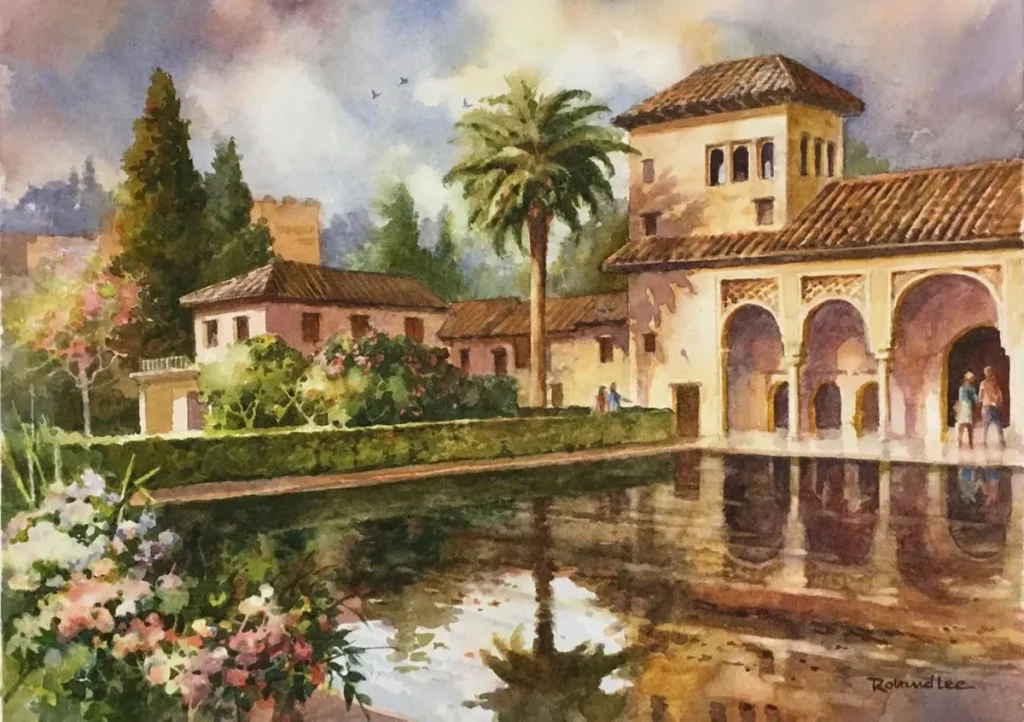
For ordinary Muslims, it is critical to reject the Western perception that Muslim thought and thinking is backward, disorganised, anti-rational or insufficient. This is called the “Aristotelian thesis in Ibn Khaldun” –which is the idea that Muslim thinkers of the Golden Age were simply transitionary, connecting Greek philosophy with the true inheritors of this tradition; the European and Western world.28 This allegation renders native Muslim thought inorganic, unoriginal, and simply a reiteration of Greek thought and thus western thought. The study of orientalism disassembles this myth by explaining that “knowledge production” and “power asymmetries” are linked.29 Victors in history determine the value and origin of knowledge.
Michel Foucault argued “knowledge is produced through an economy of discourses that reflect and legitimise power relations”.30 European and Western dominion over Muslim lands in the nineteenth and twentieth centuries displaced the legitimacy of Muslim thinking, intellectualisation and academic progress. The colonial period dulled the Muslim will to inspire a new intellectual renaissance. What is required now is a rekindling of the Muslim intellectual spirit and the regaining of the confidence to make scientific breakthroughs, contribute to philosophical debate, inspire technological innovations and produce new literature.
Brave Thinking and Intellectual Courage
The Mufti at the time of Sultan Selim I made a brave decision by challenging the Sultan’s decision to sentence Iranian silk merchants to death because of a misdemeanour.31 The Mufti’s decision to ban the printing press is often the sole subject of discussion, but the Mufti’s decision to protect the lives of Iranian merchants in the Ottoman Empire is not commonly discussed. It was this same office of the Grand Mufti, which displayed great courage to challenge Sultan Selim I, perhaps the most powerful person in the world at the time. The Mufti trusted his intellectualism and took the brave step of restraining the Sultan’s punitive decree.
It is this kind of academic courage, intellectual rigour and determination that is needed in the Muslim world today. Many Muslim countries are administered by autocracies and illiberal governments. There is very little room for intellectual discourse and free thinking. It takes, however, only a few sparks to illuminate an entire civilisation.
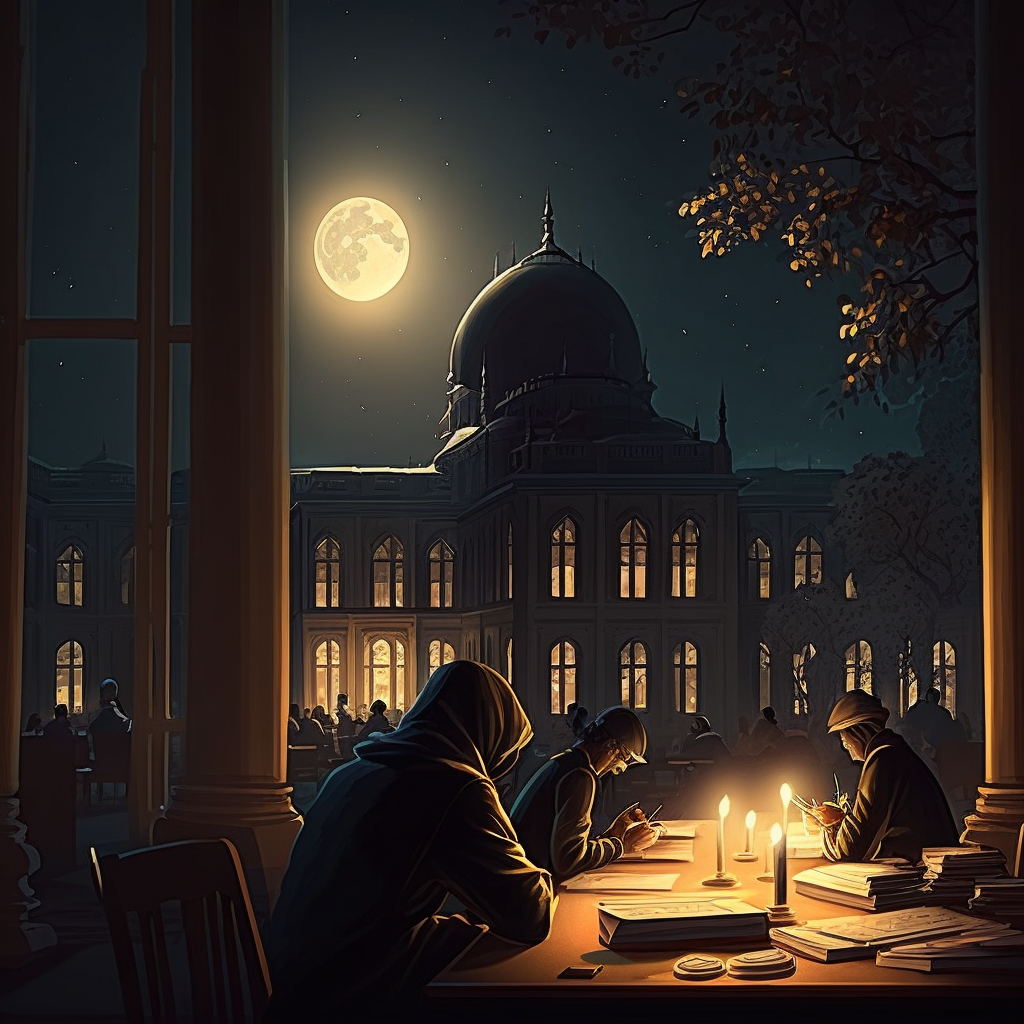
“This task demands a will stronger than steel and the courage to glide into the stars, just as Ibn Firnas had done with the first human flight experiment in the ninth century.”
~ Hammad Mustafa al-Madani al-Qadri
1 Abdulrazzak Patel, The Arab Nahdah The Making of the Intellectual and Humanist Movement, (Edinburgh University Press, 2013).
2 Transmitted by Imam al-Bayhaqi in Shu’ab al-Iman.
3 Yoav Di-Capua, Chapter Three: Nahda: The Arab project of enlightenment, in: The Cambridge Companion to Modern Arab Culture, edited by Dwight F. Reynolds, (Cambridge Universe Press, 2015), pg. 55.
4 Stephen Andersen and Durwood Zaelke, Aviation Partners The future is on the wing, (Routledge, 2003), pg. 32.
5 Ibid.
6 The City in the Islamic World, Volume One, special editors: Renata Holod, Attlio Petruccioli and Andre Raymond, and edited by H Altenmuller, B. Hrouda, B. A. Levine, R. S. O’Fahey, K. R. Veenhof, C. H. M. Versteegh, Handbook of Oriental Studies, Section 1, The Near and Middle East, (Brill, 2008), pg. 225-226.
7 Jonathan Lyons, The House of Wisdom How the Arabs Transformed Western Civilisation, (Bloomsbury Publishing, 2010).
8 The City, 236.
9 Ibid, 236-237.
10 Shaykh-ul-Islam Dr. Muhammad Tahir-ul-Qadri, The Constitution of Madinah: The First Constitution in Human History, 1999.
11 Ethan L. Menchinger, The First of the Modern Ottomans The Intellectual History of Ahmad Vasif, (Cambridge University Press, 2017), pg. 3-6.
12 The Grand Mufti, who was also known as the Shaykh-ul-Islam in the Ottoman Empire. This was an official post.
13 Ahmed Seyhun, Islamist Thinkers in the Late Ottoman Empire and Early Turkish Republic, (Brill, 2014), pg. 178-179.
14 Metin M. Cosgel, Thomas J. Miceli, and Jared Rubin, The political economy of mass printing: Legitimacy and technological change in the Ottoman Empire, Journal of Comparative Economics, Vol. 40 (3), 2012, Pg. 363.
15 Paul M. Kennedy, The Rise and Fall of the Great Powers, (William Collins, 2017).
16 Jense Hanssen and Max Weiss, Arab Thought Beyond the Liberal Age: Towards an Intellectual History of the Nahda, (Princeton University Press, 2017), pg. 235.
17 Stanford J. Shaw, Studies in Ottoman and Turkish History Life with the Ottomans, (Gorgias Press, 2011), pg. 62.
18 Yonca Koksal, The Ottoman Empire in the Tanzimat Era Provincial Perspectives from Ankara to Edirne, (Routledge, 2019), pg. 4-6.
19 Hanssen and Weiss, 8.
20 Ibid, 246. The Arab-Ottoman Synthesis.
21 Peter Hill, Utopia and Civilisation in the Arab Nahda, Chapter Four: An Arabian Utopian, (Cambridge University Press, 2019), pg. 208.
22 Hill, 208-209.
23 Naoemi Levy-Aksu and Francois Georgeon, The Young Turk Revolution and the Ottoman Empire: The Aftermath of 1908, (I. B. Tauris & Company, 2017), pg. 41-43.
24 Ali Allawi, Chapter One: Pathways to Modern Islam, in: Pathways to Contemporary Islam New Trends in Critical Engagement,
edited by Mohamed Nawab and Mohamed Osman, (Amsterdam University Press, 2020), pg. 32.
25 Alawi, 32-33.
26 Alawi, 46.
27 Ibid, 47.
28 Iulia Lumina, Chapter Two: A Theoretical Pathway to Contemporary Islam, in: Pathways to Contemporary Islam New Trends in Critical Engagement, edited by Mohamed Nawab and Mohamed Osman, (Amsterdam University Press, 2020), pg. 52.
29 Lumina, 59-60.
30 Ibid, 60.
31 Ali Unsal, Chapter Three: A New Approach to Islamic Intellectual Tradition, in: Pathways to Contemporary Islam New Trends in Critical Engagement, edited by Mohamed Nawab and Mohamed Osman, (Amsterdam University Press, 2020), pg. 88.